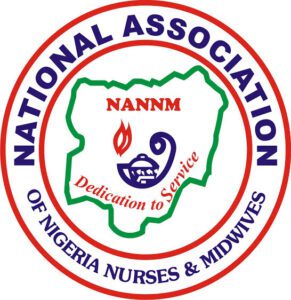


FG doubles first tranche of Basic Healthcare Fund to N50bn
…Resumes payment of N25,000 palliative to 12 million households
By Sodiq Adelakun
The Federal government has announced that it will release N50 billion as the first tranche of the Basic Healthcare Fund, a significant increase from the N25 billion allocated in 2022.
The Coordinating Minister of Health and Social Welfare, Prof. Mohammad Ali Pate, made this disclosure on Wednesday, praising President Bola Tinubu’s administration for its success in advancing the nation’s health sector.
According to the Minister, the government has remained committed to improving healthcare accessibility, affordability, and quality. Since assuming office, they have prioritised the revitalisation of primary healthcare facilities across the country, ensuring they are adequately equipped and staffed to provide essential services to communities.
During a ministerial press briefing in Abuja on Wednesday, Prof. Pate highlighted that through sustained investment and strategic partnerships, the government has expanded access to vital healthcare services, particularly in rural and underserved areas. This has resulted in improved health outcomes and a reduction in the burden of preventable diseases.
The Minister also revealed that there has been an increase in the proportion of women attending antenatal care. Over 550,000 women now attend their first antenatal care, receiving the necessary information and care to improve their pregnancy outcomes and reduce maternal and child mortality.
…FG recruits over 2,000 healthcare workers in six months
However, the government recently recruited 2,497 doctors, midwives/nurses, and Community Health Extension Workers (CHEWs) to bridge the gaps caused by attrition.
Additionally, 1,400 health facilities now have Skilled Birth Attendants to assist in deliveries, resulting in as many as 230,000 health facility deliveries per month.
The increased allocation of funds and the government’s efforts to improve healthcare services demonstrate progress and improvements in the nation’s health sector. These initiatives aim to sustain and further enhance the gains made so far.
According to him, “Over 550,000 women now attend their first antenatal care and are armed with the right information and care to improve their pregnancy outcomes and reduce maternal and child mortality.
“The achievements we have recorded signal progress and improvements. To sustain and continue to build on these gains, in the last six months, the Government of Nigeria recruited 2,497 doctors, midwives/nurses, and Community Health Extension Workers, CHEWs to bridge the gaps due to attrition.
“An additional 1,400 health facilities now have Skilled Birth Attendants to assist in deliveries at the health facilities. This has increased the number of health facility deliveries to as high as 230,000 deliveries per month.”
Speaking further, Prof. Pate said, “I am delighted to announce that the Federal Government will be releasing N50 billion as the first tranche of the Basic Healthcare Fund, a significant increase from N25 billion allocated in 2022. This infusion of funds will breathe new life into our primary healthcare facilities, ensuring that quality care is accessible to all citizens.”
Prof. Pate insisted that the government has made substantial strides in expanding health insurance coverage.
He said, “Recognising that financial barriers often deter individuals from seeking medical care, we have worked tirelessly to increase the accessibility and affordability of health insurance schemes. By supporting enrollment initiatives and streamlining administrative processes, we have extended coverage to millions of Nigerians, safeguarding them against the financial hardships associated with healthcare expenses.
“Since the beginning of this administration, we have enrolled about 750,000 more Nigerians in health insurance. We remain committed to providing access to quality health for all Nigerians through the Vulnerable Group Fund and the Basic Health Care Provision Fund (BHCPF).
“Furthermore, our commitment to immunisation has yielded remarkable results in protecting our population from vaccine-preventable diseases. Through robust vaccination campaigns and outreach programs, we have achieved significant strides in sustaining immunisation coverage nationwide, safeguarding our communities, particularly our children, from devastating diseases. Notably, our swift response to the diphtheria outbreak underscored our commitment to proactive disease control measures, swiftly containing the spread and saving countless lives.
“Since the inception of diphtheria response, over 5 million children have been immunised with the Penta vaccine and 10 million children with Tetanus-Diphtheria,Td vaccines.”
Speaking further, the Minister said, “In our ongoing efforts to combat the threat of Lassa fever, I am pleased to announce the comprehensive measures taken by the Federal Government to enhance response capabilities and safeguard the health of Nigerians. To strengthen our response to Lassa fever outbreaks, the Federal Government has embarked on the distribution of essential response commodities to states and treatment centers across the nation especially in affected states. These include Personal Protective Equipment (PPEs), Ribavirin (injection and tablets), body bags, thermometers, hypochlorite hand sanitisers, and Information, Education, and Communication (IEC) materials. By ensuring the availability of these critical resources, we aim to equip healthcare workers and facilities with the necessary tools to effectively manage and contain outbreaks.
“Recognising the importance of strategic planning and preparedness, we have developed a robust distribution plan for Lassa fever commodities. This plan ensures the timely and equitable distribution of resources to states and treatment centers based on their specific needs and vulnerability. Additionally, prepositioning of commodities has been undertaken to facilitate swift response and minimise logistical challenges during outbreaks.
“Confirmed cases of Lassa fever are promptly treated at identified treatment centers across the states. These centers are equipped with the necessary medical expertise, facilities, and medications to provide comprehensive care to patients. By centralising treatment and care, we can effectively manage cases, prevent transmission, and improve patient outcomes.
“We remain resolute in our commitment to mitigating the impact of Lassa fever and safeguarding the health and well-being of all Nigerians. Through strategic planning, resource allocation, and collaborative efforts with state governments and healthcare partners, we are confident in our ability to effectively respond to outbreaks and protect our communities.”
…Over 4.95m girls vaccinated across 15 States, FCT
The successful coverage of HPV vaccination was announced, stating that over 4.95 million eligible girls aged 9-14 years, representing 80 percent of eligible girls, have been vaccinated since the launch of the vaccine in October 2023 across 15 states plus the FCT.
The Phase 2 introduction is scheduled for May 2024 in Anambra, Borno, Cross-river, Delta, Ebonyi, Edo, Ekiti, Gombe, Imo, Kwara, Kogi, Ondo, Rivers, Oyo, Sokoto, Kaduna, Katsina, Niger, Yobe, Plateau, and Zamfara.
Pre-implementation activities have already begun to ensure a successful Phase 2 introduction, which is seen as a crucial milestone in the ongoing efforts to combat cervical cancer.
The focus is on preventive measures and expanding access to life-saving vaccines to protect the health and well-being of women and girls, ensuring a healthier future for generations to come. In addition to the successful vaccination coverage, there has been a significant increase in patient attendance at federal tertiary hospitals, which is seen as a testament to the improved quality of care and confidence in the healthcare system.
Twelve tertiary hospitals/centres have been identified for infrastructure development, including the establishment of oncology centres, radiology centers, and diagnostics facilities.
While announcing a successful coverage of HPV vaccination, he said, “Since the launch of the HPV vaccine in October 2023 across 15 states plus the FCT, we have successfully vaccinated more than 4,95million eligible girls aged 9-14 years representing 80 percent of eligible girls. The Phase 2 introduction is scheduled for May 2024 in Anambra, Borno, Cross-river, Delta, Ebonyi, Edo, Ekiti, Gombe, Imo, Kwara, Kogi, Ondo, Rivers, Oyo, Sokoto, Kaduna, Katsina, Niger, Yobe, Plateau and Zamfara.
“Pre-implementation activities have commenced to ensure a successful phase 2 introduction a crucial milestone in our ongoing efforts to combat cervical cancer. By prioritising preventive measures and expanding access to life-saving vaccines, we are taking proactive steps to protect the health and well-being of our women and girls, ensuring a healthier future for generations to come.”
Pate, who also announced a significant increase in patient attendance at federal tertiary hospitals, said the development was “a testament to the improved quality of care and confidence in our healthcare system.”
“Through targeted investments in infrastructure, technology, and human capital, we will enhance the capacity of these institutions to deliver specialised medical services and handle complex health conditions, ensuring that every Nigerian has access to world-class healthcare when needed.
“Our commitment to improving tertiary healthcare services is unwavering. Twelve tertiary hospitals/centers have been earmarked for infrastructure development, including the establishment of oncology centers, radiology centers, and diagnostics facilities.
“These investments will enhance our capacity to provide specialised care and meet the evolving healthcare needs of our people.
“In addition, we have provided steadfast support to states in combating the scourge of Lassa fever. Through collaborative initiatives, capacity-building programs, and the provision of critical resources, we have strengthened surveillance, diagnosis, and treatment protocols, strengthening our collective response to this persistent threat,” he said.
According to him, “In collaboration with the medical and dental council of Nigeria, we have taken proactive steps to address the shortage of healthcare professionals.
“By increasing the number of medical students admitted to medical schools, we are boosting the healthcare workforce and laying the groundwork for a healthier future,” he noted.
While informing that, “Digitalisation is poised to revolutionize healthcare delivery in Nigeria,” the minister said government was committed to embracing this transformation.
“Within the next two weeks, we will unveil a comprehensive program to digitize our healthcare system, streamlining processes, enhancing efficiency, and improving patient outcomes.
“The rising cost of pharmaceuticals is a pressing concern, and we are taking decisive action to address this issue. An executive order will soon be issued to curb escalating drug prices in the short term, while our mid to long-term goal involves the domestication of imported drugs within the next three years, in collaboration with the Ministry of Trade.
“In a strategic move to fortify the pharmaceutical infrastructure across the nation, the Federal Government initiated the construction of pharmaceutical-grade warehouses in 21 states in collaboration with Drug Management Agencies.
“Two additional warehouses at the federal level are also underway, complemented by the installation of the Warehousing Management Information System (WMIS) – M Supply, in these 21 pharma-grade warehouses. This visionary project, commenced in October 2023, is slated for completion in March 2024, with a scheduled commissioning in April 2024.
“The implementation of WMIS is expected to significantly enhance accountability and transparency, ensuring the potency of public health medicines and other health commodities. This infrastructure development aligns with our commitment to improving health outcomes for citizens nationwide,” he further said.
He explained that government has taken strides in advancing healthcare data management.
“Essential medicines and narcotics utilisation across the three levels of healthcare have been successfully onboarded onto the National Health Logistics Management Information System (NHLMIS) platform. This decisive step not only strengthens our international image by enhancing medicines reporting but also establishes a robust framework for monitoring and optimising the supply chain.”
…Resumes payment of N25,000 palliative to 12m households
The Honourable Minister of Information and National Orientation, Mohammed Idris, at the Ministerial Press Briefing Series with the Coordinating Minister of Health and Social Welfare, Dr.Muhammad Ali Pate revealed that the government will resume immediately the payment of N25,000 palliative to 12m households.
The Minister said: “As the government rejigs the National Social Investment Programme, the direct payments to N25,000 to 12 million households will resume immediately.
“The government is equally tackling insecurity headlong and more success stories are coming in on a daily basis. Without any doubt, we are winning the war against insecurity.
“These are indeed testament to the bold initiatives taken by Mr. President to reflate the Nigerian economy and return it to the path of growth and sustainable development,” He said.



